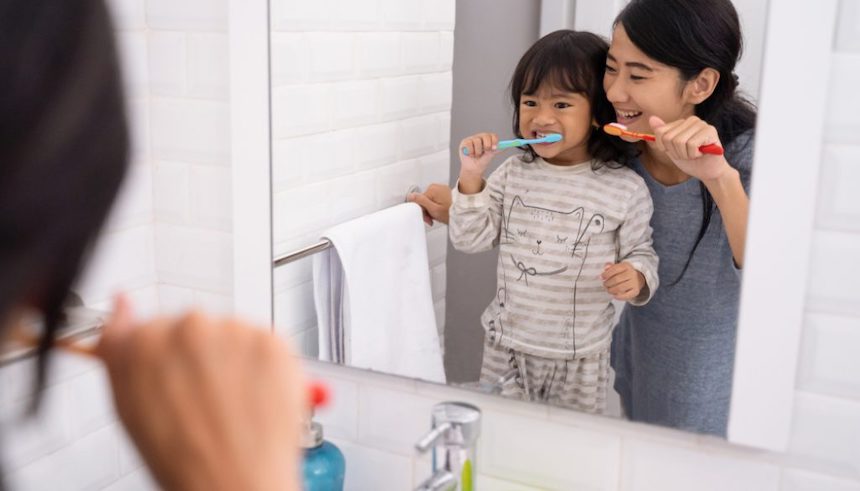
Ensuring proper oral hygiene is vital for overall health and well-being, particularly in children when habits are established for a lifetime. Dental education plays a pivotal role in molding children’s oral health practices. Let’s explore the significance of dental education in influencing children’s oral hygiene and how it can lead to better dental outcomes in the long run.
The Importance of Early Dental Education
The foundation for cultivating healthy oral hygiene habits in children lies in early dental education. As their teeth begin to develop, it is crucial to educate them about the importance of oral health care and the correct methods for brushing and flossing. Initiating dental education as early as preschool in Newmarket allows children to receive age-appropriate lessons on dental hygiene in an enjoyable and interactive manner. Integrating dental education into early childhood education increases the likelihood of children assimilating this knowledge and adopting these habits as part of their routine.
The Role of Dental Professionals
Dental education relies significantly on the contributions of dental professionals, like your nearest dentist in Mississauga. Their role extends beyond delivering dental care as they also assume the responsibility of educating both children and their parents about oral hygiene practices. A visit to the dentist’s office becomes a valuable learning opportunity for children, allowing them to grasp the significance of dental health better. These professionals showcase proper brushing and flossing techniques, engage in discussions about the effects of sugary foods on teeth, and provide personalized guidance on upholding oral hygiene. Dental professionals act as mentors, guiding children on their journey toward developing healthy dental habits.
Building a Positive Association With Dental Care
Creating a positive association with dental care is crucial in motivating children to prioritize their oral health. A dental office in Langley and other locations have recognized the importance of a child-friendly environment that alleviates apprehensions associated with dental visits. Pediatric dental offices are designed to be colourful and inviting, with waiting rooms featuring toys and books to keep children engaged and relaxed. By establishing a comfortable and welcoming atmosphere, dental offices can make dental visits a positive experience, encouraging children to feel more at ease during their appointments.
The Power of Visual Aids in Dental Education
Visual aids are potent tools in dental education as they make complex concepts easily understandable for children. Educational videos, diagrams, and interactive displays in dental offices can effectively convey information about oral hygiene, dental anatomy, and the consequences of poor dental practices. Dental professionals can use these visual aids to explain dental procedures and emphasize the benefits of maintaining good oral hygiene. Likewise, parents can also use visual aids at home to reinforce dental education, making it a collaborative effort to build healthy dental habits.
Fostering Responsibility Through Dental Education
Dental education goes beyond teaching children how to brush and floss; it instills a sense of responsibility in them for their oral health. Understanding the consequences of neglecting oral hygiene empowers children to take charge of their dental well-being. As they grow older, this sense of responsibility translates into consistent oral hygiene practices, leading to reduced instances of dental issues such as cavities and gum disease.
Nurturing Lifelong Habits
The habits formed during childhood tend to persist into adulthood. Through the establishment of correct oral hygiene practices from an early age, dental education lays the groundwork for habits that can profoundly influence an individual’s dental health throughout their life. Children who receive comprehensive dental education are more inclined to become adults who prioritize their oral health, resulting in fewer dental issues and potential cost savings in the long run.
Addressing Dental Misconceptions
Dental education also helps dispel common misconceptions and myths related to oral health. Children might hear various stories or misinformation from their peers, which can lead to confusion or anxiety about dental care. Dental professionals can debunk these misconceptions, reinforcing accurate information and promoting a more realistic understanding of dental practices. This knowledge not only improves oral hygiene but also promotes a positive attitude toward dental care, reducing fear and anxiety related to dental visits.
Dental education plays a pivotal role in shaping children’s oral hygiene habits. Early exposure to dental education, facilitated by dental professionals and integrated into early childhood education, lays the foundation for lifelong oral health practices. Empowering children through dental education enables them to assume responsibility for their oral health, leading to a decrease in dental problems and an enhancement in overall well-being. By acknowledging the significance of dental education and implementing it efficiently, parents, educators, and dental professionals can collaborate to ensure our children have brighter smiles and lead healthier lives.
- Building Healthy Habits: How Dental Education Impacts Children’s Oral Hygiene - August 16, 2023
- How To Prepare for an Epic Photography Session - July 15, 2021
- How To Properly Store Furniture in a Storage Unit - April 8, 2021






